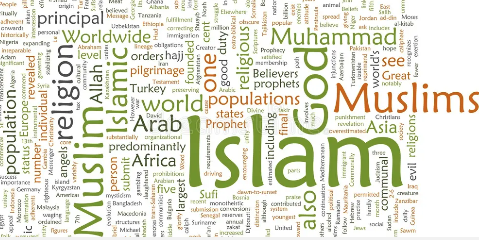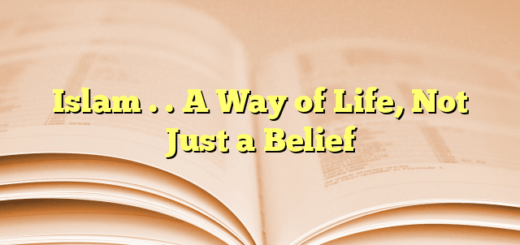The Economic System in Islam

Social Justice and Poverty Alleviation
Amid global economic challenges and the widening gap between the rich and the poor, Islamic economic systems emerge as a comprehensive model that seeks to balance market freedom with social justice. This system aims to protect individuals and societies from economic domination, exploitation, or exclusion. Islam does not view poverty as an unchangeable fate but instead provides a framework of principles and practical mechanisms to confront and reduce it within an ethical and humane context.
1. Foundations of the Islamic Economic System
The Islamic economic system is based on several core principles that shape the movement of wealth and define the relationship between the individual, society, and the state:
1.1. Dual Ownership
Islam acknowledges private ownership as a natural right but also upholds public ownership, especially over essential resources such as oil, water, and mines. Both forms of ownership are subject to restrictions to prevent exploitation or harm to others.
1.2. Restricted Economic Freedom
Individuals are free to own property, trade, and invest, provided these activities do not involve injustice, monopoly, or exploitation. Prohibited practices include interest-based transactions (usury), gambling, monopolistic behavior, and uncertainty in contracts, as they disrupt market balance and harm the vulnerable.
1.3. Social Solidarity
Social solidarity is central in Islam’s economic vision, with mechanisms such as zakat (obligatory charity), endowments, voluntary donations, and social security used to support the poor and needy. These obligations serve as a permanent system of wealth redistribution.
1.4. Justice and Balance
Islam does not aim for absolute equality in wealth but strives for fairness in distribution and reducing extreme disparities, ensuring every individual can enjoy a dignified standard of living.
2. Islamic Tools for Combating Poverty
2.1. Zakat: A Fiscal and Social Instrument
Zakat is a cornerstone of poverty alleviation in Islam, functioning as a compulsory wealth transfer from the wealthy to the needy. Unlike taxes, zakat is both an act of worship and a permanent mechanism for wealth redistribution.
According to a report by the Islamic Research and Training Institute (IRTI), effective implementation of zakat in Muslim-majority countries could reduce poverty levels by up to 25%.
2.2. Waqf (Endowment) and Social Investment
Historically, Islamic endowments played a major role in funding schools, hospitals, markets, and shelters for the poor. These charitable foundations reduced the burden on governments and contributed to sustainable social infrastructure.
A World Bank (2016) study likened the waqf system to modern community funds that can be leveraged for poverty reduction.
2.3. Prohibition of Usury and Protection of Debtors
Islam’s prohibition of interest aims to prevent wealth accumulation by financial elites at the expense of the poor. Instead, Islamic finance promotes profit-and-loss sharing models such as mudarabah and musharakah.
Institutions like Grameen Bank have demonstrated that ethical finance rooted in partnership can effectively combat poverty and promote entrepreneurship.
2.4. Promotion of Work and Productivity
Islamic teachings emphasize self-reliance through work, entrepreneurship, and innovation. Economic systems are designed to encourage investment and opportunity, especially for marginalized groups.
2.5. Anti-Monopoly and Market Fairness
Islamic economics discourages monopolies and market manipulation. It protects fair competition and forbids practices such as price fixing, hoarding, or resource control that distort the market or raise living costs.
3. Mechanisms for Enhancing Social Justice
3.1. Collective Responsibility
In Islam, society as a whole bears responsibility for ensuring economic justice. The wealthy are accountable for the poor, and governments must shape fiscal policies that protect the disadvantaged.
3.2. Ethical Oversight
The Islamic economic framework relies on internal moral accountability alongside institutional regulation. This dual system helps reduce corruption and unethical practices.
3.3. State Intervention When Necessary
Islamic economics grants the state authority to intervene in markets when needed—to regulate prices, impose temporary taxes, or provide financial support to those in need if other mechanisms fall short.
4. Historical Examples of Economic Justice
During the rule of Caliph Umar ibn Abdul Aziz, unjust taxes were abolished, fair tax collection was implemented, and wealth was so evenly distributed that in some regions, no eligible zakat recipients remained.
Endowment systems supported public services for centuries, including academic institutions, healthcare facilities, and infrastructure—often without requiring continuous government funding.
5. Contemporary Applications and Future Potential
Modern examples in Malaysia, Indonesia, Sudan, and Turkey illustrate the potential of Islamic economic tools in sustainable development and poverty alleviation—especially when combined with good governance and financial innovation.
Today, Islamic finance is a global industry valued at over $3 trillion, according to the Islamic Financial Services Board (IFSB, 2023). This reflects its capability to compete in global markets, particularly in times of economic crisis.
Conclusion
The Islamic economic system is not an abstract utopia; it is a practical, comprehensive framework that seeks to build a balanced society where the weak are not marginalized and wealth does not accumulate in the hands of the few. By upholding justice, solidarity, and sustainable development, this system offers a unique model for addressing poverty and enhancing human dignity.
References:
-
Chapra, M. Umer. The Islamic Vision of Development in the Light of Maqasid Al-Shariah. IRTI, 2008.
-
World Bank. Reviving the Waqf System: A Tool for Economic Inclusion. 2016.
-
IRTI. Islamic Social Finance Report. Islamic Development Bank, 2021.
-
Siddiqi, M.N. Role of the State in the Economy: An Islamic Perspective. Leicester: Islamic Foundation, 1996.
-
IFSB. Islamic Financial Services Industry Stability Report. 2023.
Keywords:
Islamic economics, social justice, poverty alleviation, Islamic finance

